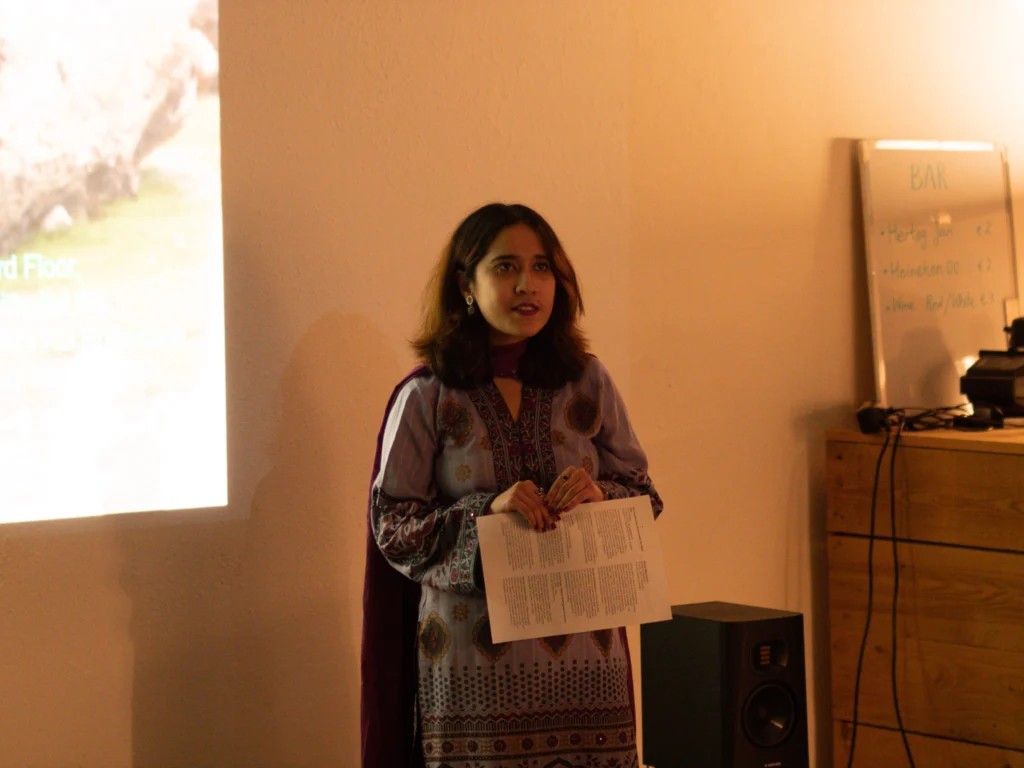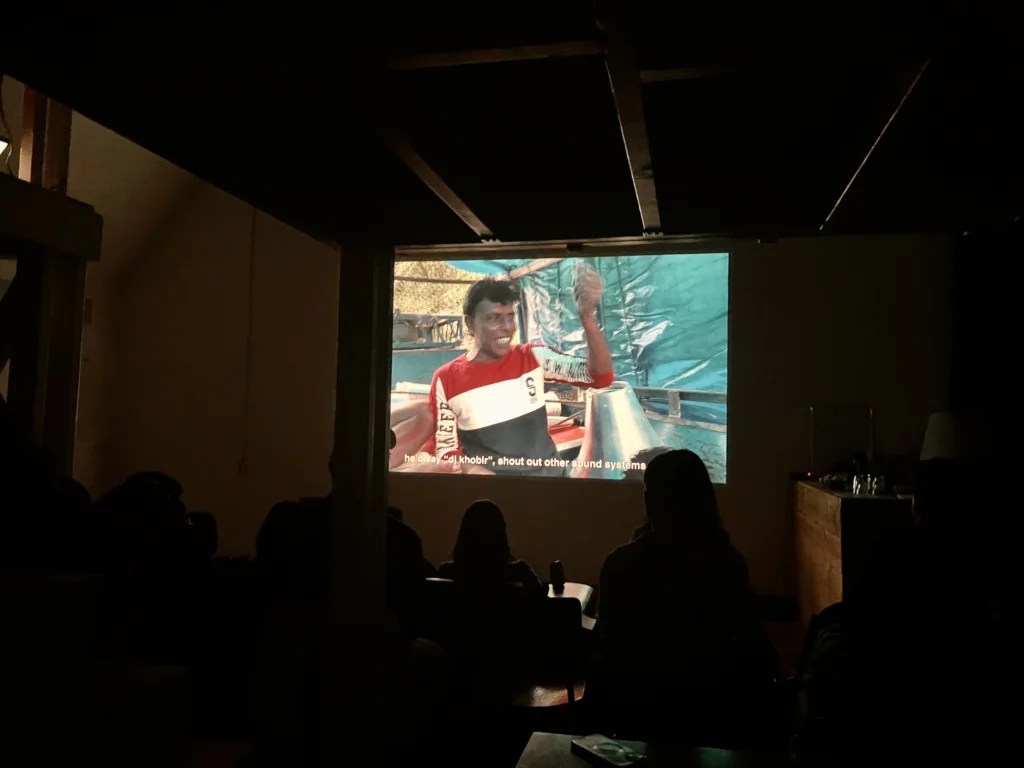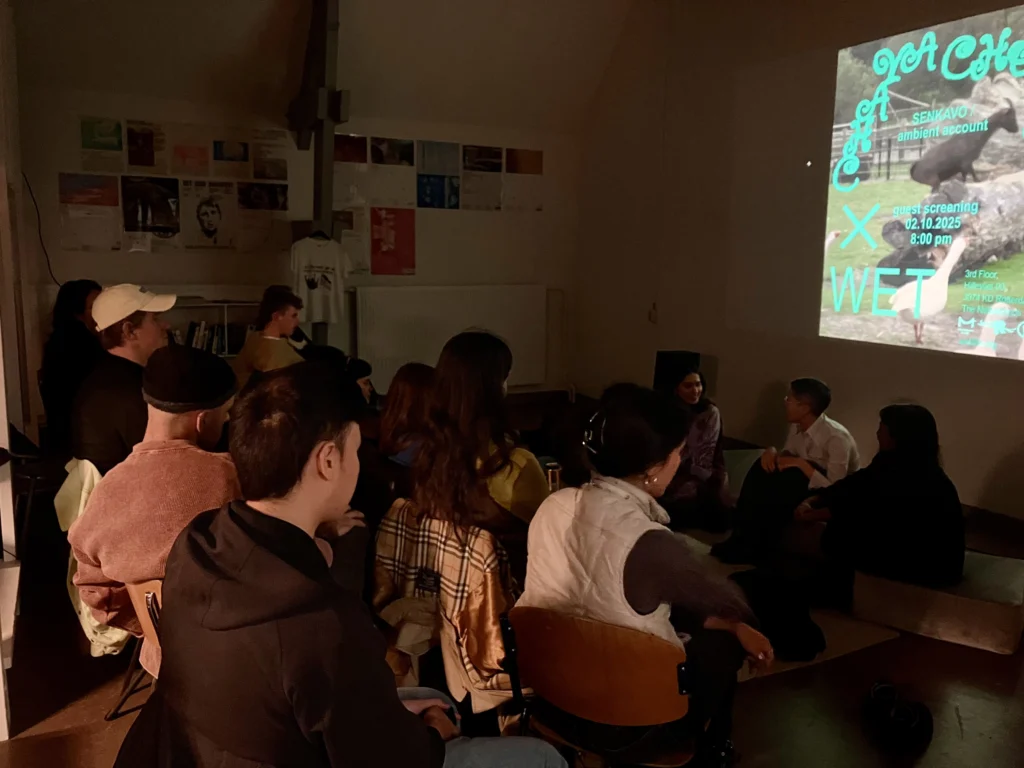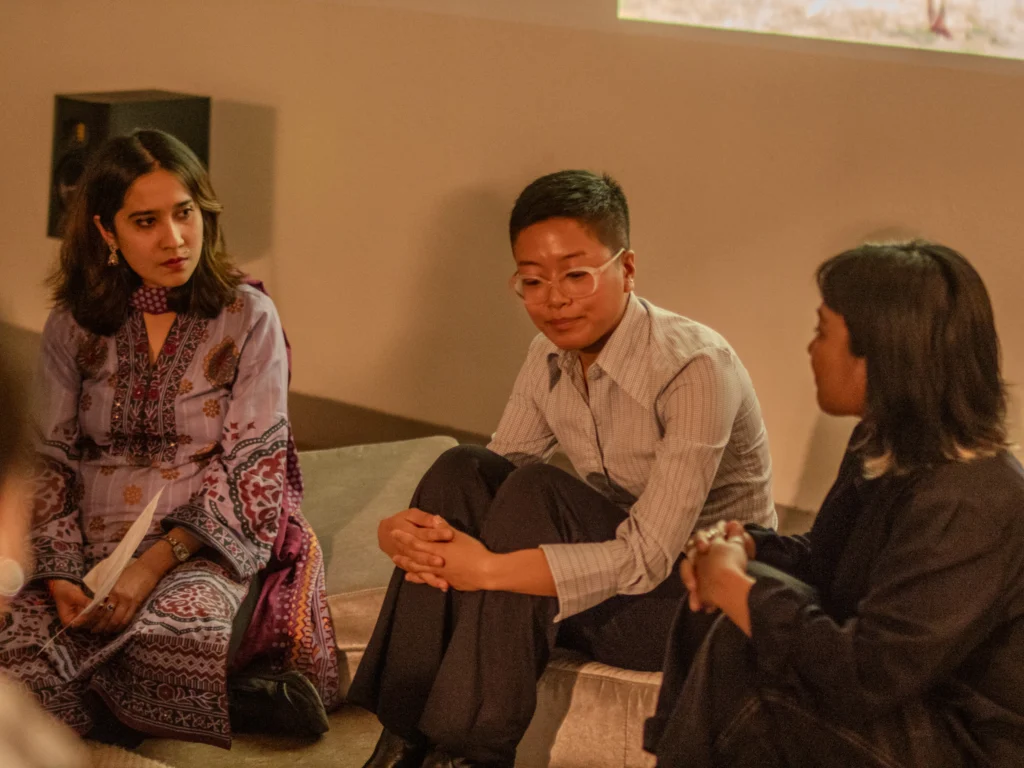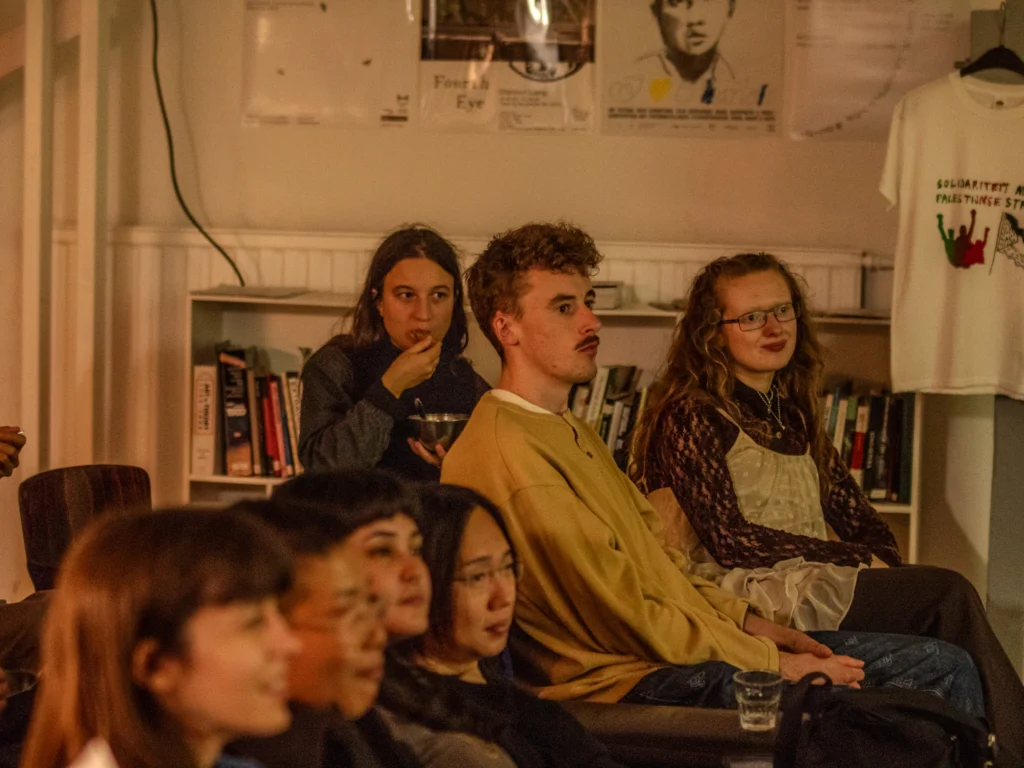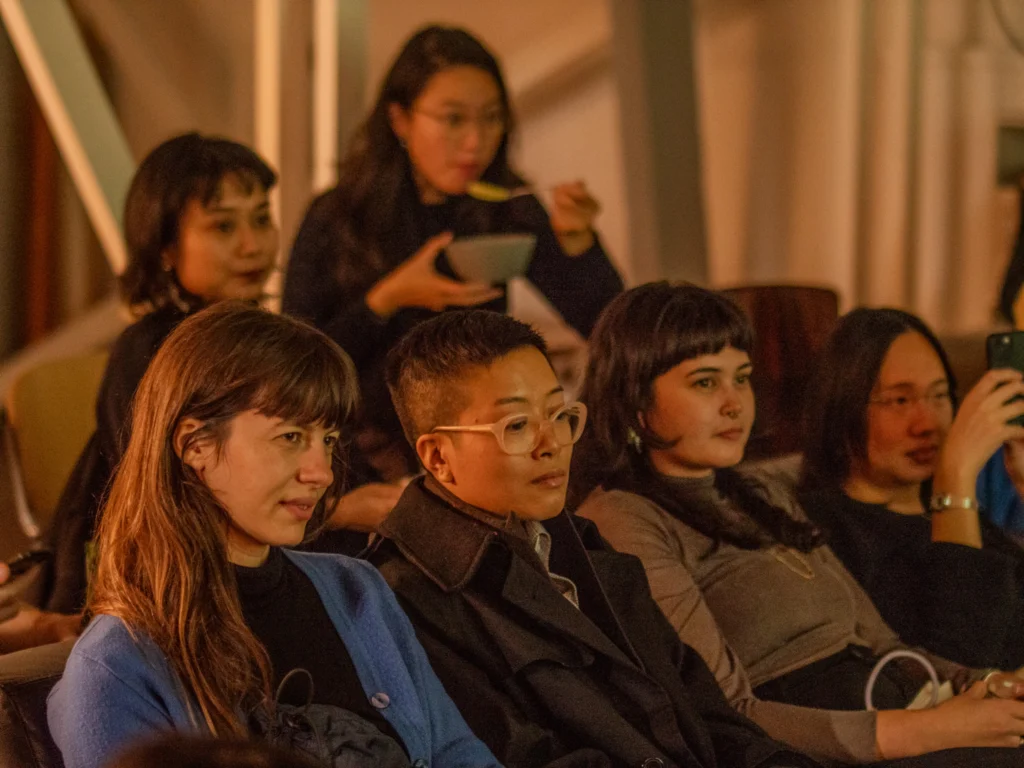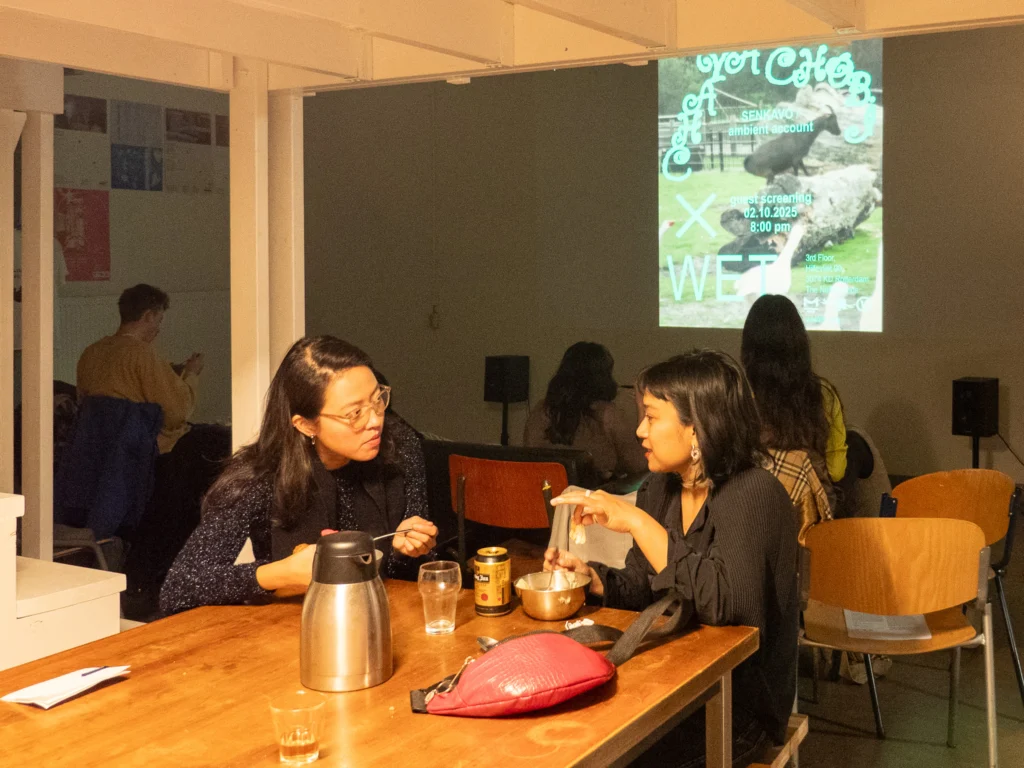Chaya Chobi X WET
Chaya Chobi X WET
SENKAVO / ambient accounts – a programme of short films
2nd October 2025, 8:00pm
We will serve soup!
Chaya Chobi X WET: SENKAVO presents a programme of short experimental films touching on themes of diasporic identities and intricate cultural heritages. Told through whispers, dreams, songs and prayers, the films place intimate experiences and microhistories at their centre.
With films by Laisul Haque (Bangladesh), Santua Tripura and Nidhi Chakma (Bangladesh), Rana Ghose (India), Fileona Dkhar (India) and Panida Te Petchara (Thailand).
Chaya Chobi is a short film screening platform founded by Avita Maheen in 2022. At the centre of Chaya Chobi are contemporary experimental and ambient films.
For films’ descriptions and bios download a PDF or read below:
Ubogeet: The Unsung Tale & Song
Santua Tripura & Nidhi Chakma
23 mins, 2024-25, Bangladesh, Chakma with English subtitles
Set in remote valleys of Chittagong Hill Tracts, Bangladesh, the film follows six Chakma Indigenous folk song practitioners. Through layered storytelling and imagery, the film reveals an enduring bond between community and song. At the centre of the documentary is Ubogeet – a form of Chakma folk song that embodies resilience, identity, and collective memory. Alongside the struggle to preserve their songs, the singers confront patriarchy, displacement, economic hardship and generational disconnect. Despite these hardships their voices continue to carry emotional truths and cultural heritage across generations.
Santua Tripura is a filmmaker, curator, and cultural producer from the Chittagong Hill Tracts, Bangladesh. His practice is rooted in the landscapes, oral traditions and lived experiences of Indigenous communities, exploring themes of cultural memory, identity, resilience and intergenerational knowledge. His practice is informed by a strong connection to his own Indigenous community and born from witnessing ongoing struggles for survival and self-determination. He is the founder of Ruwang Collective Arts, a platform which has collaborated with Indigenous multidisciplinary artists in Bangladesh since 2019, and a co-initiator of Indigenous Screen, a global platform promoting Bangladeshi Indigenous films through screenings and discussions.
Nidhi Chakma is a young Indigenous feminist researcher and development practitioner. She is passionate about Indigenous peoples culture preservation. Most of her work revolves around gender inequality and cultural diversity.
Laisul Hoque, The Purpose was to Document the Other Side
14 mins, 2023, Bangladesh/UK, English and Bengali with English subtitles
The Purpose was to Document the Other Side chronicles the artist’s mother’s journey to London. Recorded on a camera originally purchased by the artist’s father in 2004 to document his first solo trip to Europe, the film speaks of migration regimes and their deeply reverberating consequences. Through intimate conversations, the film addresses generational trauma and familial bonds in an attempt to reclaim a family narrative.
Laisul Hoque is a London-based artist from Bangladesh, whose practice explores autotheory through an interdisciplinary approach. Drawing from memory and lived experience, he reflects on microhistories and their connections to larger global narratives.
Rana Ghose, Bass Boss
17mins, 2024, Canada/UK/India, English and Bengali with English subtitles
Rana Ghose investigates Dek Bass, a sound system style unique to West Bengal and sets out to meet its elusive leading light DJ Khobir. Overwhelming, aggressive, and prone to virulent fandom in his region, this form of sonic expression and assertion is of its own genesis. There is no reference to Jamaican sound system culture within. It was rendered pure and unadulterated from the mind of one person: DJ Khobir.
Rana Ghose is a curator, economist, writer, and filmmaker. He is part of REProduce Artists, a collective producing interventions in non-traditional spaces. They engage with music and video in a modular and sequential manner in spaces such as former mills, bakeries and decommissioned hotels. His doctoral research was on risk construction in a regulatory context, and the uncertainty around adopting new technologies.
Panida Té Petchara, Dream Weaver 555
10 mins, 2024, Thailand/NL, Thai with English subtitles
Shortly after moving to the Netherlands, Panida encountered a tree wrapped in colorful mesh, echoing the holy trees in Thailand believed to bring lottery luck and wealth. This inspired Dream Weaver 555, a short film about a mysterious amulet that promises to fulfill dreams. The film uses satire to explore the commodification of superstition in Thai society. Faith turns into a product marketed to those seeking a way out of economic hardship. By imagining a world where belief becomes currency, the film reflects on desire, inequality, and the commercialisation of hope.
Panida Té Petchara is a Thai visual artist working with moving and still images, objects, and installation, currently based in Rotterdam. Her work reinterprets everyday objects through an uncanny lens to explore identity, capitalism, and belief systems. Raised in Songkhla, her journey from Thailand’s media industry to earning an MFA in Lens-Based Media at the Piet Zwart Institute shaped her focus on displacement and the struggles faced by underprivileged communities.
Fileona Dkhar, On the Road, Silence Held Against A Horizon
22 mins, 2025, India, Pnar with English subtitles
Drawing from her parents’ wedding video and various other recordings, the filmmaker maps a personal video-geography of the Jaintia Hills. Refusing sensational images, the camera listens: to roads, weather, rituals and speech. These fragments form a meditation on what is passed down and what is left unsaid.
Fileona Endoxa Dkhar is a Khasi visual artist, whose practice moves between drawing, lens-based media, ceramics and the web to think with indigenous ecopoetics: earth not as resource but as relation. Her works often take the form of letters – between kin and strangers, ancestors and archives, more-than-human worlds and contemporary existence.

